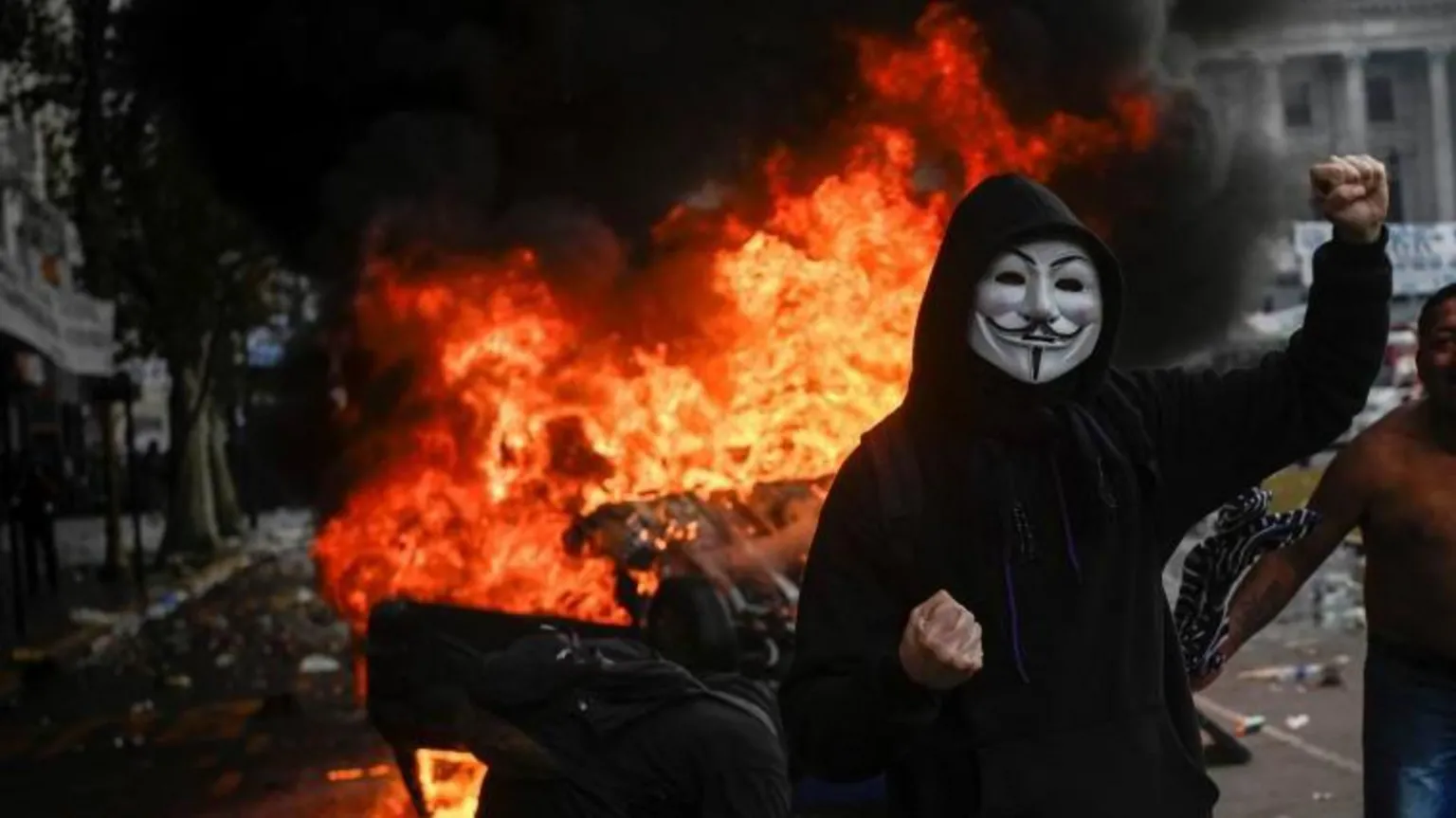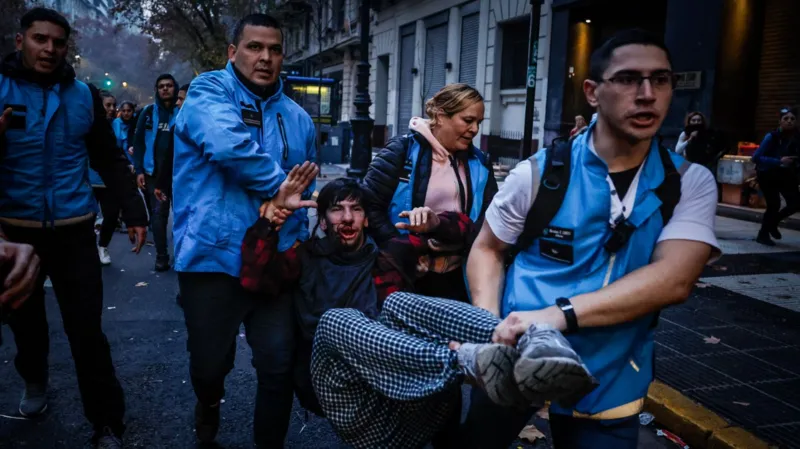
Riot police deployed tear gas and water cannons to break up protests in the capital as lawmakers gave initial approval to a contentious set of economic reforms proposed by President Javier Milei. The dramatic scenes unfolded outside Congress, where demonstrators voiced their outrage against budget-slashing measures they believe will devastate millions of Argentines.

Protesters hurled petrol bombs and stones, igniting a car and clashing violently with police. Local media described the area as a "battlefield," with numerous injuries reported. Observers noted that dozens of protesters, as well as a handful of opposition MPs, required medical attention, with at least five opposition legislators hospitalized, according to Cecilia Moreau, an opposition legislator.
The reform package, which has deeply divided the nation, was passed by the Senate with a preliminary vote after an intense debate. Initially deadlocked at 36-36, the tie was broken by Vice President and Senate leader Victoria Villarruel. "For those Argentines who suffer, who wait, who do not want to see their children leave the country... my vote is affirmative," Villarruel declared, solidifying the bill's advancement.
The reforms, proposed by right-wing President Milei, aim to revive Argentina's struggling economy. Key measures include declaring a state of economic emergency, cutting pensions, and reducing labor rights. These proposals have faced strong opposition from leftist political parties, labor unions, and social organizations, who argue that the reforms will exacerbate poverty and inequality.
Outside Congress, protesters chanted slogans such as “The country is not for sale, the country is defended,” and displayed banners with messages like “How can a head of state hate the state?” Scuffles broke out earlier in the day as protesters attempted to breach security fences, leading to intense clashes with police who responded with pepper spray.
Security forces reported at least 20 police officers injured and 15 protesters arrested. Among the property damaged were two vehicles, one belonging to a news organization, which were set on fire by demonstrators.

President Milei's office issued a statement thanking the security forces for their actions, labeling the protesters as "terrorists" and accusing them of attempting to carry out a coup d'état. “We are going to change Argentina, we are going to make it the most liberal country in the world," Milei proclaimed at a conference in Buenos Aires, reinforcing his commitment to the reforms.
Milei, who came to office in 2023, has been a polarizing figure, vowing to significantly reduce public spending. His campaign symbolized this with dramatic gestures, such as brandishing a chainsaw during speeches. Since taking office, he has cut the cabinet in half, eliminated 50,000 public jobs, suspended new public works contracts, and removed fuel and transport subsidies, all while annual inflation neared 300%.
The reform package, comprising 328 articles, will now be scrutinized point by point before its expected full approval on Thursday. Following this, the bill will return to the lower house for final ratification.
Despite the violence and controversy, Milei remains steadfast in his mission. His supporters argue that these tough measures are necessary to stabilize Argentina's economy and reduce public debt. However, critics warn that the reforms will lead to widespread suffering and social unrest.
As the nation braces for the final vote, the protests and clashes in Buenos Aires highlight the profound divisions and high stakes surrounding President Milei's economic agenda. The outcome of these reforms will not only shape Argentina's economic future but also test the resilience of its democratic institutions in the face of severe austerity measures.











